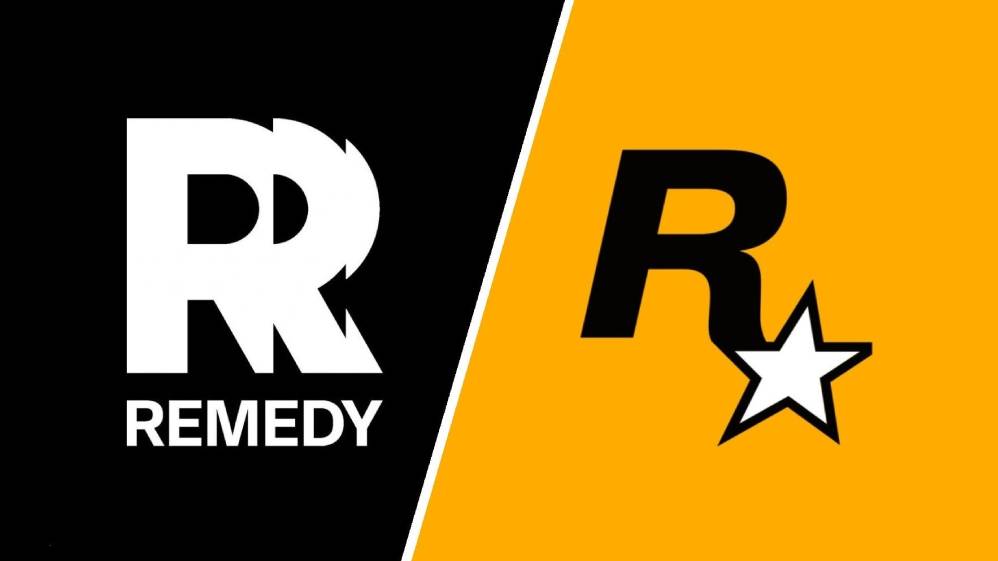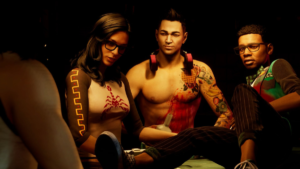Trademark Dispute between Take-Two and Remedy Entertainment
Take-Two Interactive, the owner of Grand Theft Auto 6 developer Rockstar Games, and Remedy Entertainment, the studio behind Alan Wake 2, are currently embroiled in a trademark dispute. The dispute revolves around the R-depicting logos used by both companies. Take-Two filed a trademark dispute against Remedy in the United States Patent and Trademark Office, claiming that the studio’s logo bears a resemblance to its own. This legal battle has gained attention within the gaming industry and has sparked discussions about intellectual property and branding in the gaming world.
The Origins of the Dispute
The dispute between Take-Two and Remedy Entertainment stems from the similarities between their respective logos. Both logos prominently feature the letter R, albeit in different styles. Take-Two’s logo, which is used as the official emblem for Rockstar Games, features a stylized R with a star embedded in it. Remedy Entertainment’s logo also features an R, but it is depicted differently, with a more angular and sharp design. Take-Two claims that Remedy’s logo infringes upon its trademark and could cause confusion among consumers.
Take-Two’s Trademark Claims
Take-Two Interactive has argued that Remedy Entertainment’s logo is too similar to its own, and that this similarity could cause consumer confusion. According to Take-Two, its R-depicting logo has become synonymous with the company and its games, particularly the Grand Theft Auto series. The company claims that consumers may mistakenly believe that Remedy Entertainment is affiliated with Take-Two or that its games are somehow connected to the Grand Theft Auto franchise. Take-Two argues that this potential confusion could harm its brand and reputation.
Remedy Entertainment’s Response
Remedy Entertainment has countered Take-Two’s claims, stating that its logo is distinct and does not infringe upon any trademarks. The studio argues that the use of the letter R in its logo is a common design element and that many other companies and organizations use similar depictions of the letter without issue. Remedy Entertainment maintains that its logo is unique and clearly represents its own brand identity. The studio also asserts that there is no evidence to suggest that consumers would confuse its logo with Take-Two’s.
The Role of Intellectual Property in the Gaming Industry
This trademark dispute highlights the importance of intellectual property in the gaming industry. As gaming companies invest significant resources into developing and promoting their brands, protecting their intellectual property becomes crucial. Trademarks, such as logos and brand names, help companies establish a unique identity and differentiate themselves from their competitors. In an industry as competitive as gaming, maintaining a strong brand presence is essential for success.
However, the gaming industry is no stranger to trademark disputes. Many companies have found themselves in legal battles over the use of similar logos or brand names. These disputes often arise due to the prevalence of common design elements and themes in gaming. With so many games featuring similar genres, art styles, and narrative tropes, it can be challenging for companies to create truly unique logos and brand identities.
The Impact on Rockstar Games and Alan Wake 2
The trademark dispute between Take-Two and Remedy Entertainment could have implications for both Rockstar Games and Alan Wake 2. If the dispute is resolved in favor of Take-Two, Remedy Entertainment may be required to modify or change its logo. This could impact the studio’s branding and potentially lead to confusion among consumers who are familiar with the previous logo design.
For Rockstar Games, the outcome of the dispute may have less immediate impact. The company already has a well-established brand and logo, and its games, particularly the Grand Theft Auto series, have a dedicated fanbase. However, the dispute highlights the need for gaming companies to protect their intellectual property and ensure that their logos and branding remain distinct.
Conclusion
The trademark dispute between Take-Two Interactive and Remedy Entertainment raises important questions about intellectual property and branding in the gaming industry. As gaming companies continue to invest in their brands and develop unique identities, protecting their intellectual property becomes crucial. The outcome of this dispute will likely have implications not only for Take-Two and Remedy Entertainment but also for the broader gaming industry.
While it is understandable that companies want to protect their trademarks and prevent confusion among consumers, it is also essential to consider the broader context of design elements and themes in the gaming industry. Many games share similar elements, and it can be challenging to create truly unique logos and branding. Striking a balance between protecting intellectual property and allowing for creative expression is crucial for the future of the industry.
Ultimately, the resolution of this dispute will have lasting effects on the branding and identity of both Take-Two and Remedy Entertainment. It serves as a reminder to gaming companies to be vigilant in protecting their intellectual property and to carefully consider the potential impact of their branding choices.




